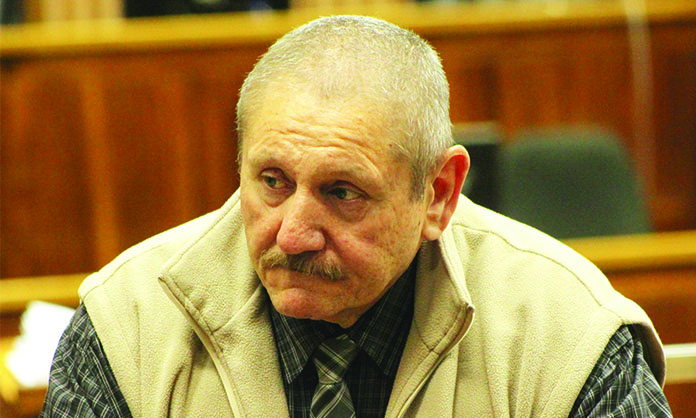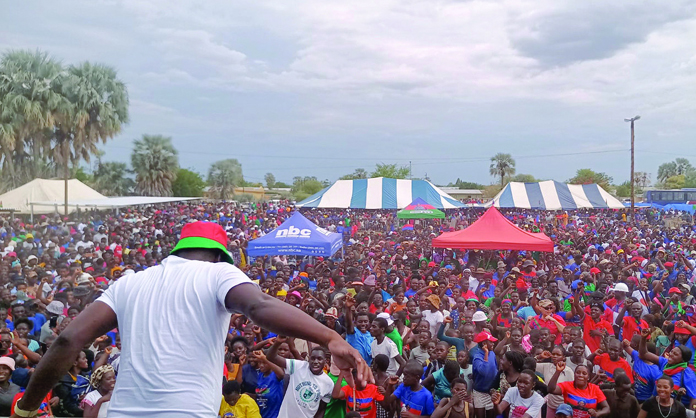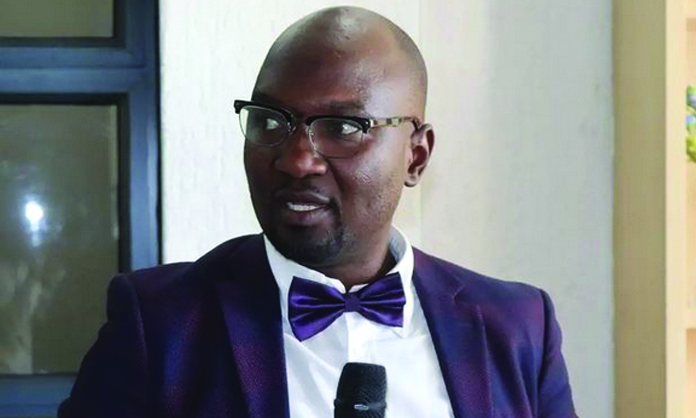Evidence connecting former Namibian Institute of Mining and Technology (Nimt) employee Ernst Lichtenstrasser to a hidden pistol with which the institute’s two top executives were gunned down in April 2019 has played a key role in Lichtenstrasser’s conviction on two counts of murder and other charges.
Lichtenstrasser’s version about events which led to the murder of Nimt executive director Eckhart Mueller and his deputy, Heimo Hellwig, at Arandis on 15 April 2019 “is not only improbable, but false beyond reasonable doubt”, judge Christie Liebenberg said in a judgement he delivered in the Windhoek High Court yesterday.
Liebenberg found Lichtenstrasser (62) guilty on five charges in connection with the killing of Mueller and Hellwig, and also on three counts linked to the theft of a shotgun from a gunsmith at Grootfontein and the supply of that firearm to an employee of Lichtenstrasser in northern Namibia.
It was not “a mere coincidence” that Lichtenstrasser was in the Arandis area on the same day that Mueller (72) and Hellwig (60) were killed at Nimt’s head office at Arandis, Liebenberg remarked in his judgement.
Lichtenstrasser was part of a “concerned group” of Nimt employees who were in conflict with the Nimt management and questioned its running of the institute, the court heard during his trial.
The judge also heard that before the two men were murdered when each was shot multiple times, Lichtenstrasser had been locked in a battle of wills with them about a decision to transfer him from the Tsumeb campus of Nimt to the institute’s campus at Keetmanshoop.
Lichtenstrasser was supposed to report for duty at the Keetmanshoop campus of Nimt on the day the murders were committed at the Nimt head office. However, the evidence before the court established beyond reasonable doubt that by 15 April 2019 he had no intention to relocate to Keetmanshoop, Liebenberg found.
The judge noted that according to ballistic evidence, spent cartridges found at the murder scene, at Lichtenstrasser’s home at Otavi, and at a farm in the Tsumeb area where he had done target shooting two days before the murders, had all been fired with the same firearm.
The murder weapon was missing until police officers discovered a dismantled 9mm Beretta pistol and gun holster that were buried at a rocky outcrop in the desert near Arandis, where the officers carried out a search, on 17 May 2019.
When DNA samples taken from the firearm parts and holster were analysed, it was established that the samples matched Lichtenstrasser’s DNA profile, the court was informed.
CONFESSION
Liebenberg also recounted that Lichtenstrasser made a confession to police officers when he was questioned at Walvis Bay on 15 May 2019.
In the confession, he recounted that he had driven to the Arandis area on the day before the murders, and that it felt like he was “on a mission”.
Referring to Mueller, he stated that he hated “this bastard”, who was giving him headaches.
Lichtenstrasser said he saw Mueller’s car driving into Arandis, and he followed the vehicle and stopped behind it.
He continued that he approached Mueller and Hellwig when they got to the entrance of the Nimt head office, and Hellwig then made a mistake by asking him what he was doing there.
After that, Mueller made “the biggest mistake” by asking him the same question and telling him to “get lost”, Lichtenstrasser said.
He continued that, after Mueller had spoken to him “in his voice that everybody hates”, he “lost it”, and acting automatically he pulled out his firearm and started to shoot at the two men.
Lichtenstrasser told the police officers he fired several shots at Mueller and Hellwig, that he had a blurred recollection of events, and that the last shots he fired were directed at the two men’s heads.
After the shooting, he got into his vehicle and drove off into the desert, and it was only after he had driven some distance that he came to realise what he had done, Lichtenstrasser stated as well.
Liebenberg noted than one of the state’s witnesses told the court she had seen a white man driving with speed in a Nissan pickup – the same sort of vehicle that Lichtenstrasser was using at the time – from the Nimt head office and heading out of Arandis.
Lichtenstrasser disputed that he had made the confession freely and voluntarily, and claimed he had made the statement after police officers threatened to arrest his wife in connection with the murders.
On that score, Liebenberg said testimony given by a psychologist who told the court Lichtenstrasser had been impressionable when he made the confession and that he was not emotionally fit to make a statement at that stage, did not convince him that he had to come to a different conclusion on the admissibility of the confession.
The confession had been proven to be admissible evidence against Lichtenstrasser, and even without that evidence, the rest of the evidence proved his involvement in the murders, the judge said.
Liebenberg also noted that a former colleague of Lichtenstrasser told the court he met Lichtenstrasser in a shop at Tsumeb in March 2019.
The witness said during a conversation in the shop, Lichtenstrasser told him Mueller and Hellwig were responsible “for all the shit going on at the moment”.
Apparently referring to Mueller, Lichtenstrasser added that he should either retire “or be taken out”, and said it would be quick – “once in the stomach and once in the head”.
The witness contacted the police and reported the conversation to them after he heard that Mueller and Hellwig had been murdered.
Lichtenstrasser was found guilty on two charges of murder and counts of possession of a firearm and ammunition without a licence, attempting to defeat or obstruct the course of justice, theft of a shotgun, possession of that firearm without a licence and the unauthorised supply of the firearm of an employee who was working form him in northern Namibia.
Lichtenstrasser is due to return to court for a presentence hearing on 14 November.
He has been held in custody since his arrest at Karibib on the evening of 16 April 2019.
Legal aid defence lawyer Albert Titus is representing Lichtenstrasser.
The state is being represented by deputy prosecutor general Antonia Verhoef.
Stay informed with The Namibian – your source for credible journalism. Get in-depth reporting and opinions for
only N$85 a month. Invest in journalism, invest in democracy –
Subscribe Now!






